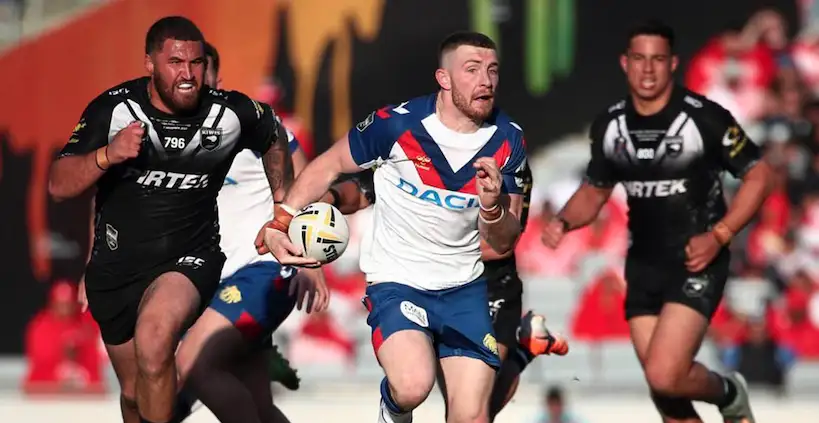International Rugby League’s eligibility rules updated

The International Rugby League board has updated rules regarding the eligibility of players for international matches.
The changes were made following a review and consultation with the membership and they come into effect immediately.
The rules only apply to fully sanctioned international matches.
The key points are:
- Eligibility to represent a nation is based upon the birthplace of the player, the birthplace of any parent or grandparent, or residency over a five-year period.
- A player can only elect to represent one nation in any calendar year
- ‘Electing’ to represent a country has changed from playing for that country to being named in a 19-man squad (or final tournament squad in a sanctioned 9s competition) for that country.
- A player eligible for any nations other than Australia, England, New Zealand can only make one switch between those nations in a four-year period. Players qualified for Australia, England and New Zealand plus any other nation can make multiple switches however they can only elect to represent one nation in any calendar year.
- Players can only represent one of Australia, England or New Zealand in a career, even if eligible for more than one of those nations. If eligible they can play for nations outside of those three.
- Players cannot represent Australia or New Zealand if they have elected to represent Great Britain and vice versa.
- No player can play for more than one country in any recognised global event.
To put the rules in to context, Australian-born Jackson Hastings has elected to play for England and will not be able to represent his country of birth once he makes his England debut. Once Hastings plays for England, he would never be allowed to play for Australia.
And the same rules apply to Warrington half-back Blake Austin, who elected to play for Great Britain via family heritage last year.
Warrington forward Joe Philbin has played for Ireland via the family heritage rule but he was born in England, so he could still represent England and Ireland in the future. But Philbin would not be able to play for England or Ireland in the same calendar year.
Watch our Last Tackle podcast, featuring a guest, every week. SUBSCRIBE to Love Rugby League on YouTube.
More on site
Ben Currie has no regrets over missing the Great Britain Lions tour
Ryan Brierley’s sin-bin was harsh, says Tony Smith
Daryl Powell calls on Castleford players to start better